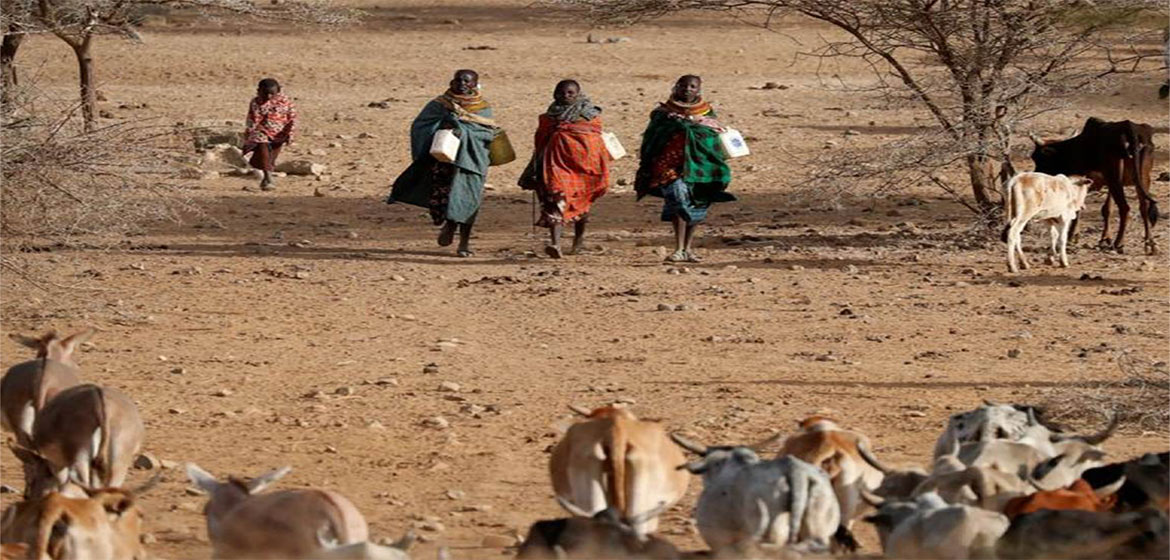Visiting the Coast Region of Kenya in October 2016, the area was in the grips of a severe and extended drought season. Women farmers talked of poor crops, and some said they were only able to provide one meal to their children each day: corn meal with milk. Many children were not going to school and if they did, they went hungry.
Land is an essential cornerstone of life in rural Kenya, and throughout the world, yet more than a third of the earth’s land is currently degraded, caused by drought and overuse of land. The loss of fertile productive land negatively impacts an estimated 1.5 billion people, undermining food and economic security. Without global rethinking of land management practices, this staggering number will only grow.
This year’s annual (June 17) reminded the world that sustainable land management can “regenerate economies, create jobs, and revitalize communities,” while also supporting responsible environmental stewardship.
At the core of our work, both at and (TNC), we know that sustainable land management starts with, and is maintained by, strong communities—women and men who are empowered to make decisions over their resources. This requires two key principles: 1 sufficient levels of de-centralized land use management and planning and 2. secure land and resource rights.
At TNC, we work to strengthen outcomes for people and nature. For example, in Northern Australia, we are supporting indigenous communities’ management of their traditional lands, strengthening their connection to Country.
Indigenous partners engage in participatory planning, called , which enables them to envision a future for their lands with economic opportunities in alignment with cultural priorities. Indigenous ranger programs employ local people and include training in land management, such as soil conservation and habitat restoration so that traditional knowledge and modern science are combined for lasting environmental and livelihood benefit.
Underpinning these kinds of programs and community-led management is having a secure foundation, which is why territory and resource rights is a pillar of our work at TNC, and why we at Landesa have worked for over fifty years to secure women’s, men’s, and communities’ land rights around the world.
One of Landesa’s current programs is working with local government in the Tanintharyi, Ayeyarwady, Bago, and Kachin regions of Myanmar where 85,000 acres of community forest lands have been certified.
This work is part of the country’s broader commitment to title and transfer nearly 2.3 million acres (918,000 hectares) of forest land to community management by 2030. , forest land certificates help protect against illegal logging and allow traditional forest dwellers to practice sustainable community forestry.
Our experience, , demonstrates that forest user groups are restoring and managing land in ways that provide sustainable sources of income, including the harvesting and selling of non-timber forest products through forest and farm producer organizations (FFPOs).
In other areas of the world, research has shown that secure tenure can lead to increased soil conservation (such as terracing and soil bunds, fallowing, and crop rotation), which restore degraded land, increase carbon sequestration, and strengthen food security through .
For example, despite the recognized benefits of fallowing, the practice may be underutilized where insecure tenure leaves unused lands . Secure land tenure may also promote investments such as the development of water catchment infrastructure to protect against drought, or to restore degraded land and enhance livelihoods. This growing body of research suggests that a community’s sense of security over their land can drive both environmental and economically beneficial outcomes.
Community consultation—with women and men—and decentralized land use planning supports sustainable land management by empowering communities to leverage their unique knowledge of the land.
Empirical studies have found that when decision-making is effectively devolved to communities, there are positive associations with better protection of , , and . This reduces emissions and improves carbon sequestration, a critical counterweight to climate change and its consequences, including drought.
To tackle global challenges of land degradation, climate change, and sustainable development, we need to think locally.
The United Nations Convention to Combat Desertification, Sustainable Development Goal 15, and the United Nations Framework Convention on Climate Change are leading international frameworks dedicated to addressing the issues.
De-centralized land management and secure land and resource rights are important tools in these global efforts.
Rural communities, equipped with secure tenure and a voice in decision-making, are the best stewards of the land. They have the unique perspectives necessary to combat degradation and desertification, and adapt to changing landscapes to sustain their resources and their communities.
Source:
Related to SDG 10: Reduced inequalities, SDG 15: Life on land and SDG 13: Climate action



